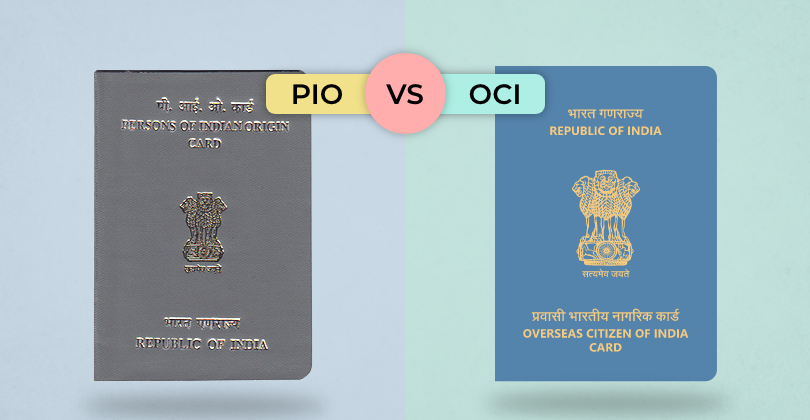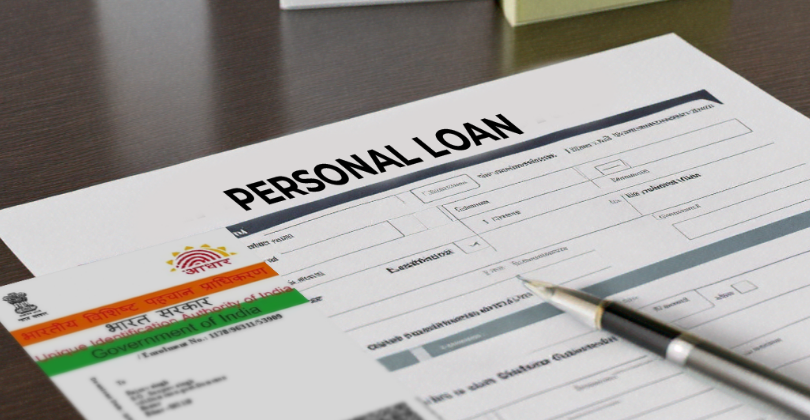Are you of Indian origin and living abroad? You've probably come across terms like PIO and OCI. These cards offer different benefits, but it can
Pursuing higher education can be an enriching experience, but the cost of tuition fees can often be a significant hurdle for many students. While scholarships, grants, and savings can help offset the expenses, additional financial assistance may be required sometimes. In such cases, personal loans for education could be a viable option.
This article aims to guide you through the process of securing a personal loan specifically tailored to your tuition fee needs.
A Step-by-Step Guide to Obtaining a Personal Loan for Education
This guide will help you understand the steps involved in securing a personal loan for education. After reading this post, you will be better equipped to navigate the loan application process.
-
Understanding Personal Loans
It is important to understand the loan types before getting into the intricacies of applying for securing a personal loan for education. Personal loans are unsecured loans; hence, no collateral is needed to obtain one. These loans can be used to meet a range of expenses, including education. The repayment terms are outlined in the loan agreement. Borrowers repay the loan in fixed monthly instalments.
Secure Your Personal Loan for Education on KreditBee!Apply Now! -
Assessing Your Financial Needs
You must assess your financial needs before applying for a personal loan for education. Calculate the overall cost of education, taking into account additional costs like books, lodging, and transportation. You can determine the loan amount if you account for every expense at the planning stage.
-
Researching Lenders
Finding the right lender is crucial when securing a personal loan for education. Research different financial institutions, including banks, credit unions, and online lenders. Compare interest rates, repayment terms, and additional fees offered by every lender. Look for lenders specialising in education loans or personal loans tailored to meet education funding.
-
Checking Eligibility Criteria
Each lender has specific eligibility criteria that applicants must meet to qualify for a personal loan. The criteria may include factors such as credit score, income, employment history, and age. Review the requirements of various lenders to ensure you meet their criteria before applying. If your credit score is less than ideal, consider exploring options to improve it or seek a co-signer/guarantor to strengthen your loan application.
Check Your Eligibility and Get Instant Personal Loans on KreditBee.Apply Now! -
Building a Strong Loan Application
A well-prepared loan application significantly increases your chances of approval. Gather the necessary documents, such as identification, proof of income, bank statements, and educational enrollment details. Prepare a comprehensive budget plan showing how the funds will be used and how you plan to repay the loan promptly. This demonstrates your commitment to the lender.
📗 Related reading- 5 Reasons Why Small Personal Loan Applications Can Get Rejected
-
Applying for the Loan
Once you have chosen a lender and gathered the required documentation, it's time to submit your loan application. This can typically be done online or through a physical branch, depending on the lender's preferred method. Fill out the application accurately and ensure all necessary documents are attached to avoid delays or rejections.
-
Loan Approval and Disbursement
After submitting your application, the lender will review it and assess your eligibility. If approved, the lender will extend a loan offer, specifying the loan amount, interest rate, repayment terms, and any additional fees. Carefully review the terms and conditions before accepting the offer. Once you accept the loan offer, the funds will be disbursed to your account or directly to the educational institution.
-
Repaying the Loan
Personal loans are repaid based on the terms agreed upon with the lender. Make sure you understand the repayment terms, including the monthly instalments required to be paid. Pay the EMIs on time to avoid penalties. Maintain your credit score by making suitable financial decisions. Consider setting up automatic payments to prevent delays or lapses.
-
Exploring Loan Repayment Options
Borrowers may find repayment challenging under unforeseen circumstances. In such situations, it is important to communicate with your lender promptly. Some lenders offer flexible repayment options, such as deferment or forbearance, which offers temporary relief from payments. Explore these options and understand the potential implications before making any decisions.
Tips for Submitting a Successful Personal Loan Application
When applying for a personal loan for education, certain measures can significantly improve your chances of approval.
-
Maintain a Good Credit Score
Lenders often consider credit history when evaluating loan applications. Ensure your credit score is high by paying your EMIs on time, reducing debts, and correcting any errors on your credit report.
-
Provide Accurate and Complete Information
Fill out the loan application with precise details and attach all required documents. Incomplete or incorrect information can lead to delays or even rejection of your application.
-
Demonstrate Stability
Lenders appreciate stability. Maintain a steady income and employment history to showcase your financial reliability and ability to repay the loan. Your place of residence also matters. A steady permanent address can go a long way in helping you secure an education loan.
-
Consider a Co-signer
If your credit history is limited or weak, a co-signer with a strong credit profile can increase your chances of approval. However, you and your co-signer will be equally responsible for loan repayment.
By following these tips, you can present a strong and convincing loan application, increasing the likelihood of securing the personal loan you need for your education.
Personal Loans vs. Other Education Financing Options: Making the Right Choice
When considering how to finance your tuition fees, it's essential to understand the pros and cons of personal loans. Compare them with other education financing options to derive the right conclusions. It is important to compare personal loans with alternatives such as federal student loans or private student loans. You may also consider dipping into your savings or investments to fund your education.
By evaluating factors like interest rates, repayment terms, eligibility criteria, and the financial impact of a loan on your future, you can make an informed decision about the most suitable financing option for your educational needs.
Conclusion
Securing a personal loan for education can be a viable solution to finance your tuition fees and meet related expenses. By understanding the loan process, assessing your financial needs, and carefully selecting a suitable lender, you can get the necessary funds to pursue your educational goals.
Handle the loan application responsibly and make timely payments to maintain a healthy credit profile. With proper planning and financial diligence, you can easily get a personal loan for your tuition fees.
AUTHOR
KreditBee As a market leader in the Fintech industry, we strive to bring you the best information to help you manage finances better. These blogs aim to make complicated monetary matters a whole lot simpler.







